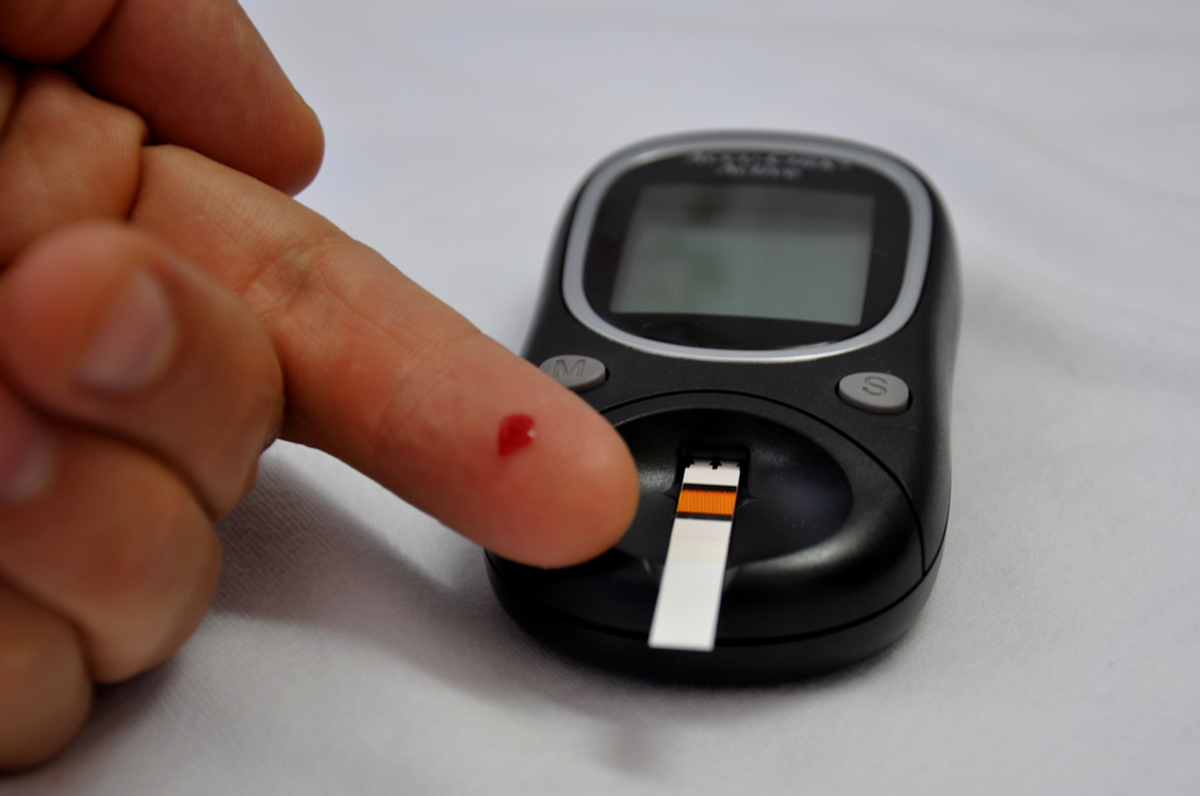Younger Diabetics Especially at Risk for Parkinson's
Comparing 2,000 people who had Parkinson's disease to 10,000 people who did not, the Danish investigative team learned that 6.5 per cent of Parkinson's patients but only 5 per cent of non-patients had had diabetes for two years or more.

Diabetes seems to increase risk of Parkinson's among Danes by about one-third, after statisticians take into account age, sex, and emphysema, which was considered to have been caused by heavy smoking. Heavy use of tobacco tends to protect against Parkinson's disease, through the action of nicotine on the brain.
In particular, diabetes was associated with a Parkinson's diagnosis before the age of 60, which is the average age of someone newly diagnosed with the movement disorder. The effect of diabetes on the risk of Parkinson's disease was greater in women than in men.
Possible Risk Factors
There are several potential explanations and shared factors that could contribute to the increased likelihood of Parkinson's disease in individuals with diabetes:
-
Insulin Resistance: Both diabetes and Parkinson's disease involve problems with insulin regulation. In diabetes, the body becomes resistant to insulin, leading to elevated blood sugar levels. In Parkinson's disease, insulin resistance may also play a role in the degeneration of brain cells involved in movement control.
-
Inflammation: Chronic inflammation is a common feature of both diabetes and Parkinson's disease. In diabetes, inflammation arises from high blood sugar levels, while in Parkinson's disease, it is associated with the degeneration of dopamine-producing neurons in the brain. This shared inflammatory process may contribute to the increased risk.
-
Oxidative Stress: Diabetes and Parkinson's disease are characterized by increased oxidative stress, which can damage cells and tissues over time. The accumulation of oxidative damage may contribute to the development of both conditions.
-
Dopamine Dysfunction: Parkinson's disease is primarily characterized by the loss of dopamine-producing neurons in a region of the brain called the substantia nigra. Some studies suggest that insulin resistance and impaired glucose metabolism may affect dopamine function, contributing to Parkinson's disease.
-
Genetics and Shared Risk Factors: Diabetes and Parkinson's disease have some common genetic and environmental risk factors. For instance, certain genetic variants and lifestyle factors, such as diet and physical activity, may contribute to the development of both conditions.
-
Medication Use: Some medications used to treat diabetes may influence the risk of Parkinson's disease, although the evidence on this is not yet definitive.
Both diabetes and Parkinson's disease are believed to involve continuous low levels of inflammation in the brain. At least in pre-diabetes and before starting a diabetes diet, most diabetics consume unhealthy amounts of sugar and fat. The consumption of sugar and fat encourages the creation of arachidonic acid, a fatty acid that "cancels out" the beneficial effects of omega-3 essential fatty acids.
An excess of arachidonic acid causes creation of a group of compounds known as eicosanoid hormones that encourage constriction of blood vessels and destruction of injured tissues. These reactions are useful in keeping the body whole when the skin or outer layers of the body have been injured, but they are potentially deadly when they occur inside the body.
These "bad" eicosanoid hormones raise blood pressure and restrict blood flow to the brain. They activate the white blood cells known as macrophages to act as a kind of clean up crew to remove dead or dying tissues—but the macrophages themselves can get caught in the constricted blood vessels and require removal by still more macrophages, which can also get caught in the tissue and die.
This pattern of tissue destruction increases the risk of both Parkinson's disease and Alzheimer's disease in middle aged adults who have poorly controlled diabetes. But it is important to understand that even a greatly increased risk is not necessarily a high risk of developing either disease.
Read More: Why Does Diabetes Cause So Many Problems With Feet?
A recent American study tracked the development of Parkinson's disease over a 15-year period in 298,000 adults. In this group, 60 per cent more diabetics were diagnosed with Parkinson's than non-diabetics. However, the absolute numbers of cases were a few more than 200 diabetics and a few more than 1,500 non-diabetics diagnosed with the dread movement disease.
Diabetics in the American study have a 60 per cent relatively increase in Parkinson's disease risk, but only an 0.8 per cent risk over all. Only about 1 in 125 diabetics will develop Parkinson's. If you have diabetes, it is a good idea to pay careful attention to keeping blood sugar levels as close to normal as possible, but it is also comforting to remember that you have better than a 99 per cent chance of not developing the Parkinson's disease.
- Eva Schernhammer, Johnni Hansen,Kathrine Rugbjerg, Gene Wermuth, and Beate Ritz. Diabetes and the Risk of Developing Parkinson’s Disease in Denmark. Diabetes Care, 16 March 2011.
- Photo courtesy of Victor by Flickr : www.flickr.com/photos/v1ctor/10871254373/

